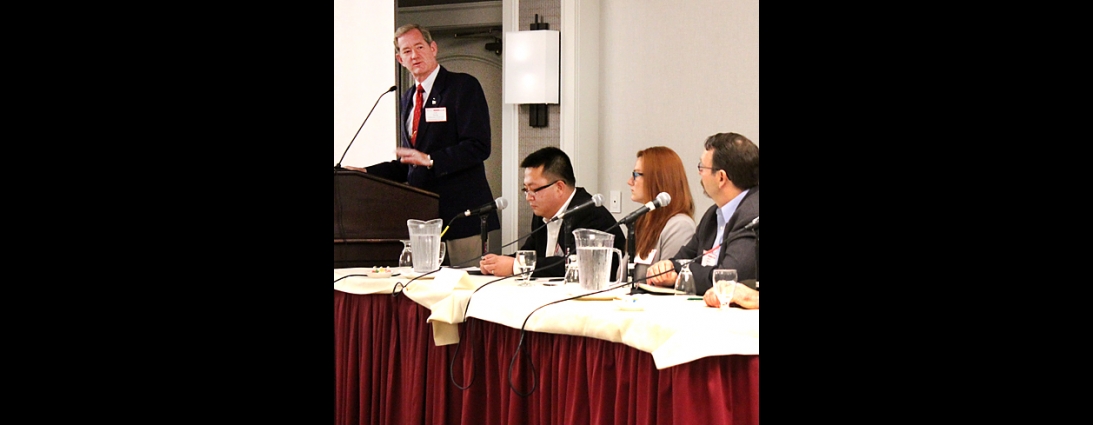

A microgrid is an approach to electrical supply that allows local users more control over the optimization of power sources and uses. As more microgrids are installed for local energy production and distribution, the risk of cyberattacks on utility infrastructure also increases.
The need for security in microgrids was the subject of a panel session lead by CCSE’s Executive Director Len Hering, RADM, USN (ret), during the Third Military and Commercial Microgrids Summit held Nov. 20-22 in San Diego. The panel consisted of industry and military experts in cyber security, infrastructure protection and smart grid applications.
“Protecting our energy networks and the computers that control them against unwanted intrusion is a critical consideration as the nation adopts widespread use of microgrids for local power control and on-site generation,” Hering said.
What is a microgrid?
Technically, a microgrid is a grouping of small, independent power-generating equipment connected to computer systems that monitor, control and balance energy demand, supply and storage in response to changing energy needs. One distinguishing feature is the ability to disconnect from the utility grid, called “islanding,” to provide power in response to demand needs or external events, such as power outages or other emergencies.
The demand for microgrids as a strategy for ensuring grid reliability and energy independence is growing -- not only for military applications, but also for campus environments in the commercial, government, health care, education and industrial sectors.
Standardization vs. security
One of the major issues of the panel discussion was balancing the conflicts between standardizing microgrid processes and the need for security. Common communication protocols, applications and control system functions means any microgrid is vulnerable to cyber risks if attackers gain access or control.
The panel’s bottom line was that cyber security for microgrids takes continuous monitoring and vigilance, and that ultimately, it’s the human variable, and not just technology, that makes a network safe or vulnerable.
Incentives for distributed generation
CCSE offers businesses, municipalities and others financial rebates for a wide range of clean and efficient energy technologies through the Self-Generation Incentive Program.
